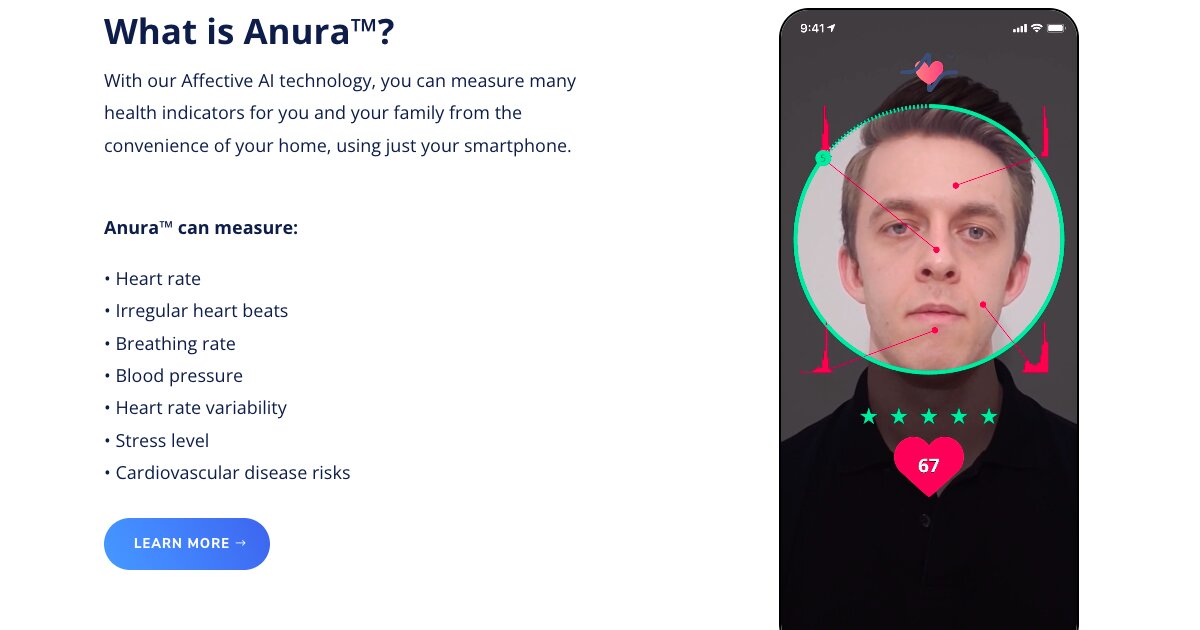
Credit: NuraLogix
NuraLogix introduces health measurement app in Singapore
Canadian health AI company NuraLogix has introduced its mobile health measurement app in Singapore.
Anura uses proprietary transdermal optical imaging technology, which captures blood information from a person's face through a video camera. It can measure various vital parameters, including blood pressure, heart rate, stress level, cardiac workload, and risk of heart attack and stroke.
The facial blood flow data is then processed via cloud where an AI engine called DeepAffex applies advanced signal processing and deep learning to predict physiological and psychological affects.
The reading process, according to the company, takes only 30 seconds.
AI drug discovery firm Standigm partners with Merck Korea
Standigm, an AI drug discovery company in South Korea, has signed a memorandum of understanding with life science firm Merck Korea for AI-driven drug discovery research.
Based on a media release, the partnership involves Standigm's adoption of Merck's AI software SYNTHIA for compound synthesis.
SYNTHIA is a computer-aided retrosynthetic design tool that can quickly design synthetic pathways.
"Applying AI to the drug discovery process can dramatically reduce time in discovering novel drug candidates and finding optimised synthesis paths," said Standigm CEO and co-founder Sojeong Yun.
Late last year, Standigm formalised a partnership with Institut Pasteur Korea for developing new anti-tubercular drug candidates through AI.
Nalagenetics gets CE mark for its pharmacogenomics software
Singaporean biotechnology firm Nalagenetics has received a CE mark for its pharmacogenomics software.
The PGx Core module on its Nala Clinical Decision Support software goes with its Nala PGx Core(R) pharmacogenomics testing kit, which genotypes lead pharmacogenes.
According to a press statement, both products are used together as a plug-and-play solution for labs with qPCR machines.
The qPCR testing kit can read 20 variants within four known pharmacogenes, CYP2D6, CYP2C9, CYP2C19, and SLCO1B1, while the software can generate more than 170 drug-gene reports.
In recent years, qPCR testing has been widely adopted for COVID-19 testing.
"With pharmacogenomics testing becoming more and more ubiquitous around the world, it requires standardised and robust tools to support the rapid increase of adoption," said Nalagenetics CEO Levana Sani.















